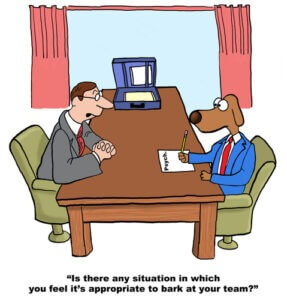Advice for Employers and Recruiters
3 tips for a successful situational interview
Have you ever had a situational interview? In situational interviews, interviewers ask candidates questions on how they might handle specific situations in the workplace; these interviews differ from behavioral interviews. When recruiters ask you behavioral questions, they ask you how you have handled situations in the past. When recruiters ask you situational questions, they want to know how you would hypothetically handle situations should they occur in the future. For students and recent grads who may lack work experience, situational questions give you a chance to shine and showcase your problem solving and critical thinking skills. These interviews also tell potential employers whether or not you’re the right cultural fit for their companies based on what you will do in the future, not what you’ve done in the past. Whether you’re a college student, recent graduate, or other job seeker, here are three tips to prepare you for a successful situational interview.
When answering questions, answer them to explain the way you might behave in real settings in the workplace. Describe the action you would take as an employee and explain why you would take that action.
2. Research potential employers.
You don’t want to go into any interview without researching a potential employer. Understanding a company’s policies and company culture will give you a better idea of what it expects of employees. This can help you answer situational interview questions because you can, at least partly, base your responses on research.
3. Avoid profanity and stay positive.
Be careful not to use profanity during your situational interview. You may not only offend the interviewer, but you also leave a negative impression of how you might talk to co-workers. Stay positive, and keep focused on how you will help a potential employer. Never bash former employers or focus on what has gone wrong in the past. Situational interviews give you the chance to discuss what you might do differently if given the chance, so focus on being positive, hopeful, and optimistic.
Situational interviews foreshadow what job seekers could be like in the workplace. Prepare to answer questions relevant to the job and company you’re interested in, so employers will see you as the best fit for them.
Do you need more information on interviewing for your job search? Click on over to the College Recruiter blog and follow us on Facebook, LinkedIn, Twitter, and YouTube.
New Job Postings
Advanced Search